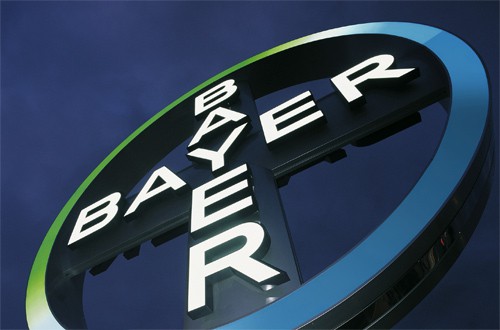
Armed with new phase 3 data, Bayer has said it intends to press ahead with regulatory filings for its anti-androgen drug darolutamide in early-stage prostate cancer.
The ARAMIS study tested the drug’s ability to prevent locally-advanced, castration-resistant prostate cancer (CRPC) from spreading to other parts of the body, and showed that compared to placebo it significantly extended metastasis-free survival (MFS), defined as the time between the start of treatment and evidence of metastasis or death from any cause.
If approved, darolutamide would become the third anti-androgen therapy to be licensed for men with this stage of prostate cancer after Pfizer/Astellas’ Xtandi (enzalutamide) and Johnson & Johnson’s Erleada (apalutamide) – which both got the nod from regulators for non-metastatic CRPC earlier this year.
Bayer, which co-develops darolutamide with Finland’s Orion Pharma under the terms of a 2014 licensing deal, says it will discuss the data from ARAMIS with regulatory authorities to see if the trial can support filings. It has picked up a fast-track designation for the drug from the FDA for non-metastatic CRPC.
While there are already two rivals on the market, darolutamide’s developers think it has qualities which could make it a good option for patients.
The new drug has a fairly benign safety profile, which is put down to the fact that it has minimal blood-brain barrier penetration and does not significantly increase testosterone levels in the blood. Moreover, it also seems to retain activity against most androgen receptor mutations, including the F876L mutation that renders tumours resistant to Xtandi and Erleada.
Around 10-20% of prostate cancer cases are castration-resistant, and up to 16% of these patients show no evidence that the cancer has spread at the time of the castration-resistant diagnosis. Non-metastatic CRPC still a largely untapped area, but analysts think that it could develop into a multibillion-dollar market – provided that the MFS data generated for these drugs is matched by overall survival (OS) improvements, which will help secure reimbursement.
Under the terms of their 2014 agreement, Bayer has the right to commercialise darolutamide globally while Orion has an option to co-promote the product in Europe.
The Finnish company also stands to receive milestone payments from Bayer, for example €45m on the first commercial sale in the US and €20m on the first sale in Europe, as well as royalties of around 20% and one-off payments if sales targets are met.
Meanwhile, darolutamide is also being develop for other indications, and Orion and Bayer have a phase 3 trial on the go – called ARASENS – in patients with metastatic hormone-sensitive prostate cancer (mHSPC) that is expected to generate results in 2022.




